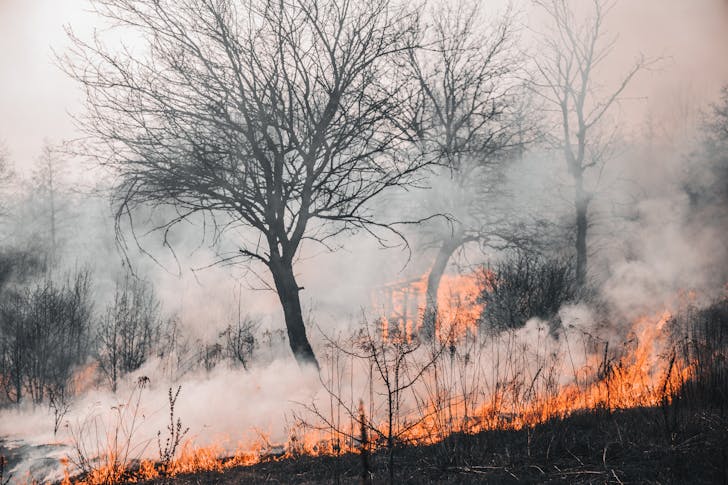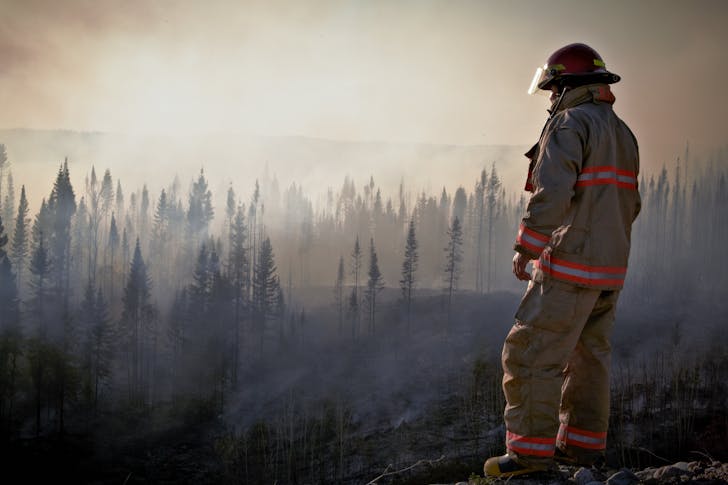Wildfires are a growing concern, not just for the devastation they cause to landscapes but also for the serious health risks they pose. Even if you are far from the flames, wildfire smoke can infiltrate your air and affect your lungs and overall well-being.
In this article, we will see how wildfires harm air quality, the health issues they trigger, and what you can do to protect yourself.
Wildfires Drastically Impact Air Quality!
The smoke from wildfires is a dangerous mix of fine particles, gases, and toxic chemicals. As the flames devour trees, buildings, and vegetation, they release pollutants like carbon monoxide, nitrogen oxides, and particulate matter (PM2.5).
These tiny particles can travel hundreds of miles, tainting the air far beyond the fire’s immediate reach.

So, wildfire smoke doesn’t just make the sky look hazy. It turns the very air you breathe into a health hazard.
How Does Wildfire Smoke Affect Health?
Exposure to wildfire smoke can trigger a cascade of health issues. In the short term, it causes coughing, shortness of breath, and throat irritation. Your eyes might sting, and you could feel fatigued or dizzy. However, long-term exposure is where the real danger lies, as it can lead to chronic respiratory conditions and even cardiovascular problems.
For those already struggling with asthma, COPD, or other lung diseases, wildfire smoke can be catastrophic. It inflames the airways and reduces lung function, increasing the risk of hospital visits.
Heart problems can also escalate, as smoke particles affect blood vessels and strain the cardiovascular system.
Who Is Most at Risk?
Some people are more vulnerable to wildfire smoke than others. Children, for example, have developing lungs that are particularly sensitive to pollution. Older adults are also at higher risk because their lungs and hearts may not be as strong.
Pregnant individuals face unique dangers, as smoke exposure can harm both the parent and the developing baby.

Similarly, those with pre-existing heart or lung conditions need to be extra cautious. For these groups, wildfire smoke is not just an inconvenience. It can be life-threatening. If you fall into any of these categories, it is vital to take extra precautions during wildfire season.
What Symptoms Should Worry You?
If you have a chronic health condition, you need to be alert to worsening symptoms during wildfire events. Persistent coughing, wheezing, or shortness of breath could indicate that smoke is affecting your lungs. Chest pain or irregular heartbeat might signal cardiovascular distress caused by inhaling fine particles.
Don’t ignore symptoms like extreme fatigue or dizziness, as they could mean you are not getting enough oxygen. Pregnant individuals should watch for unusual headaches or nausea.
If symptoms escalate, seek medical attention immediately. Don’t wait until it’s too late to protect your health.
So, if you live in a wildfire-prone area, preparation can save your health and life. Start with an evacuation plan. Know the fastest routes to safety and have a checklist of essentials ready. A go-bag with medications, non-perishable food, and bottled water is a must.
Wildfires can move fast. So, being ready to leave at a moment’s notice is critical.





